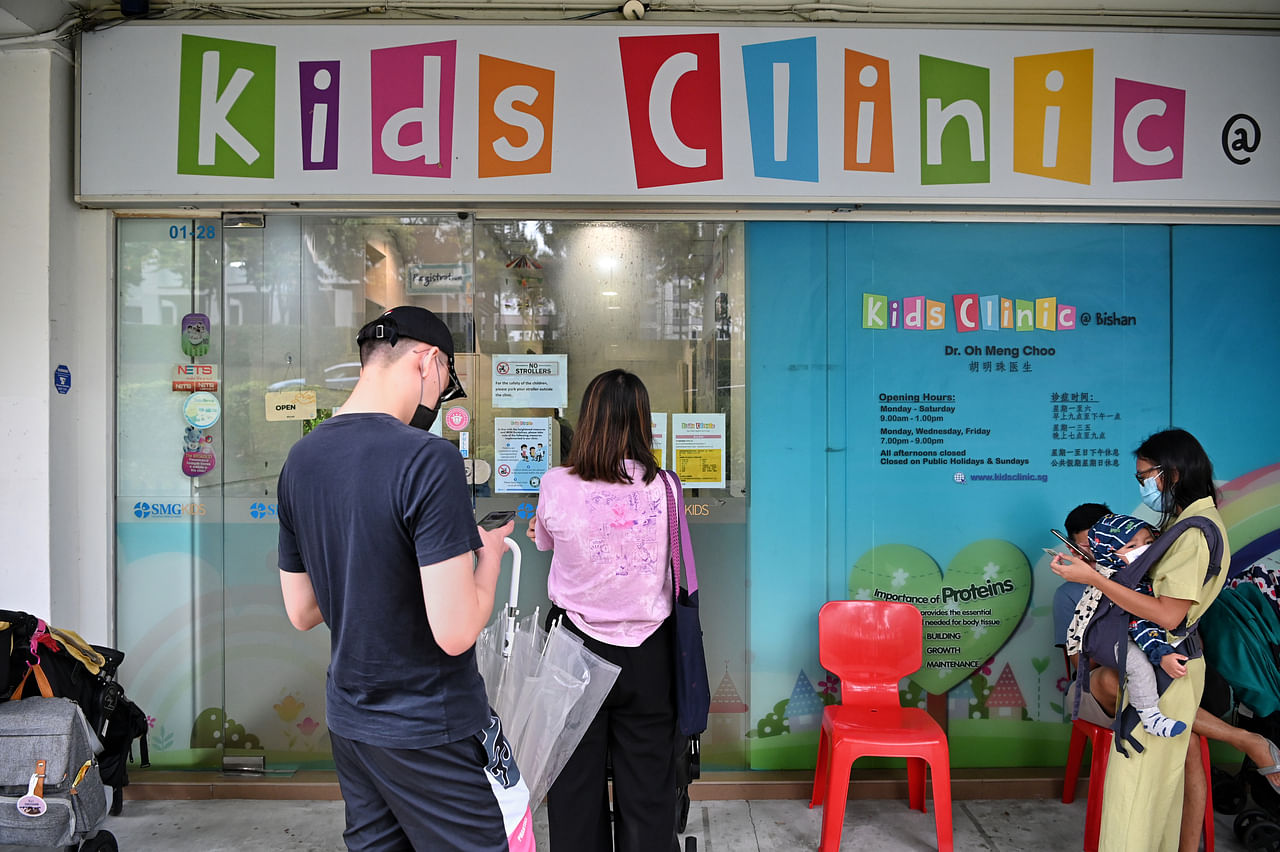askST: My child tested positive for Covid-19, when should I go to emergency department?
Sign up now: Get ST's newsletters delivered to your inbox

Most children with Covid-19 do not fall severely ill, and even those who are hospitalised can typically be discharged within three days.
ST PHOTO: KUA CHEE SIONG
Follow topic:
SINGAPORE - Parents whose children have tested positive for Covid-19 have been urged to avoid emergency departments unless the children develop serious medical problems.
But what kind of symptoms should trigger an urgent hospital visit?
The Straits Times spoke with two paediatricians - Dr Kam Kai-Qian of KK Women's and Children's Hospital and Dr Olivia Leow of the Khoo Teck Puat-National University Children's Medical Institute at the National University Hospital - to get these and other questions answered.
Q: My child tested positive for Covid-19 and is unwell. When should I head to the emergency department?
A: Children should be taken to the emergency department if they have a persistent fever that lasts more than five days, or have difficulty breathing, both doctors said.
Other warning signs are if the child is eating less than half of what he or she usually does, or is very lethargic - for example, sleeping all the time and showing no interest in play.
You do not need to take the child to the emergency department the moment he or she tests positive for Covid-19, or is showing flu-like symptoms such as a fever or cough, Dr Leow said.
Q: My child will turn 12 in less than a year. Should I wait for him to turn 12 before taking him for vaccination, so he can get the full adult dose?
A: Given the current surge in Omicron cases, delaying vaccination may mean that your child could get infected before age 12, Dr Kam said.
At present, younger children aged five to 11 are given a 10 microgram dose of the Pfizer-BioNTech vaccine, compared with 30 micrograms for adults.
Even with smaller vaccination doses, children will still produce antibodies, which will protect them against the virus, Dr Kam added. "I would suggest not to wait, because waiting is like betting against their chances of getting infection, and I think that is not worth it."
Q: What does it mean for children to become severely ill with Covid-19? Does the Omicron variant make any difference to the type of medical conditions they develop?
A: Most children with Covid-19 do not fall severely ill, and even those who are hospitalised can typically be discharged within three days.
However, those with severe Covid-19 may develop ailments such as pneumonia and croup, an inflammation of the voice box and windpipe. Some may also experience seizures or brain infections.
In such cases, children are normally hospitalised for more than three days.
Croup and seizures are more commonly seen in children these days, compared with last year when the Delta variant was dominant, Dr Leow said.
There is also the risk of multi-system inflammatory syndrome (MIS-C), which happens two to eight weeks after a child has been infected - even after the body has already cleared the virus, Dr Kam said.
MIS-C is a rare condition in which different body organs - such as the heart, lungs and liver - become inflamed. Local data shows that one in every 1,000 children infected with Covid-19 will develop MIS-C. The condition can be serious, with affected children requiring intensive care.
Q: What symptoms should I look out for if I think my child has Covid-19?
A: Most people develop a cough, fever and other flu-like symptoms when they contract Covid-19. But it is not uncommon for some to start vomiting or having diarrhoea as well, Dr Kam said.
If you believe your child has come into close contact with a Covid-19 patient, and is having symptoms such as a fever and slight cough on top of diarrhoea and vomiting, it is advisable to point this out to your doctor, she added.
Parents should also test their child for Covid-19 using an antigen rapid test kit.
Q: My child is too young to be vaccinated. Are there any special precautions I should take to keep them safe?
A: You should abide by the usual precautions - practise social distancing, wash your hands regularly and wear your mask properly when you are outside the house, Dr Leow said.
As it tends to be more difficult to get children under five to wear their masks properly and maintain a safe distance from other people, parents should remind them to do so frequently.
They should also try to keep children who are unwell at home instead of taking them to school, she suggested. This is because the risk of infecting others is higher as young children are often not able to abide by safe distancing measures.

